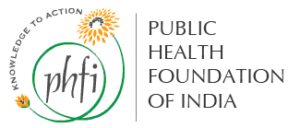
The Public Health Foundation of India (PHFI) has been accused of misusing funds acquired from the Gates Foundation. It has been stripped of its right to foreign funding by the Home Ministry as a result.
The PHFI is a public-private initiative, launched in 2006 by the then-Prime Minister Manmohan Singh in 2006. Its aim is
The PHFI enjoys the support and collaboration of numerous bodies, both foreign and domestic. Though an “autonomously governed” non-government organisation (NGO), the PHFI enjoys significant governmental support, including from government ministries.
Violating the FCRA?
A recent turn of events, however, means the PHFI can no longer use funding from foreign donors. This is because its Foreign Contribution Regulation Act (FCRA) registration has been revoked by the Ministry of Home Affairs (MHA).
The FCRA was enacted into law in 2010 by the Indian Parliament, as a consolidating measure. Its primary purpose is
This is where the PHFI has allegedly fallen down. DNA India quotes a senior official, who says “funds meant for HIV control were used in anti-tobacco activities by PHFI.” The official adds, “These funds were provided by the Bill and Melinda Gates Foundation.”
The funds are believed to total ₹43 crore (430 million rupees or about US$10 million). The Economic Times reports the money was used “to lobby with parliamentarians, the media and the government on tobacco-control issues”, but misrepresented as “research grants” by the PHFI. Foreign funds are not appropriate for use for lobbying, because of the tax-exempt status of NGOs in India.
The ET quotes an MHA official as saying “Anti-tobacco lobbying is a valid and perfectly legal activity, but not through zero-tax NGOs.”
Past discrepancies
This is not the first time the Gates Foundation has encountered controversy regarding its financial ties with the PHFI. In 2015, Reuters reported that the Foundation’s finances were under investigation by the MHA. This was said to be after “discrepancies in financial transactions” were detected between the Foundation and the PFHI, according to an MHA insider.
“The credit amount did not match the debit amount”, the insider elaborated. They added it was unclear at that stage as to whether the Gates Foundation or the PHFI was at fault.
However, this incident may be related to a long-simmering dispute within Government. PHFI had been working with the Ministry of Health and Family Welfare (MOHFW) on some of the anti-tobacco programmes. MOHFW activity on this subject has long provoked the ire of other departments, some farmers’ groups and the tobacco industry. The Commerce and Agriculture ministries are often instinctively pro-tobacco, as are a number of state governments. In 2014, some reports suggested that then health minister Dr Harsh Vardhan was moved to another job because of the “tough steps [he had taken] against the massive tobacco industry in the country increasing taxes in the hope that consumption would reduce.”
Agro industry lobbying groups are stepping up their efforts to limit curbs on tobacco consumption.They are also running ad campaigns and lobbying outreach on the influence of “foreign NGOs”.
PHFI “seeking continuation of FCRA registration”
The PHFI now joins a long list of 20,000 NGOs who have lost their FCRA licence. This has left just 13,000 NGOs in India eligible to receive foreign funds.
The PHFI hopes to resume utilising foreign funds in the near future. They claim to have provided clarification to the MHA about the nature of their spending.
A spokesperson for the NGO says
“Certain observations were made by MHA on utilisation of funds related to PHFI’s projects on tobacco, HIV/AIDS and its financial reports. We have submitted all documents of fund usage to MHA and provided the needed clarifications. We are seeking continuation of FCRA registration, based on clarifications provided.”
The role of the Gates Foundation

It is a distinct possibility that the involvement of the Gates Foundation is stimulating the media attention garnered by the incident. The Foundation has not had an easy year in India, as it faces increasing scrutiny over the role it plays in Indian politics. This is despite its past friendliness with the current Modi government.
In April, a white paper was prepared and submitted to Health Minister J.P. Nadda by the Swadeshi Jagan Manch (SJM), the economics arm of Sangh Parivar. Sangh Parivar is a Hindu nationalist association with links to the Bharatiya Janata Party (BJP) – the party of Prime Minister Narendra Modi. The white paper questioned the influence of the Gates Foundation on Indian healthcare policies.
In February, conflicting reports abounded about a reduced role for the Gates Foundation within India’s national immunisation programme. Some news reports suggested this was due to links between the Foundation and pharmaceutical companies, as Health Issues India noted at the time. However, we also suggested media reports were overplaying the issue. The government itself denied it was “shutting the gate” on Gates. Some of these activities ran through PHFI.
Increased scrutiny is being applied to NGOs in India, especially where foreign organisations are involved. It looks as though exemptions from this scrutiny are not being handed out readily – even for organisations founded by past Prime Ministers.

